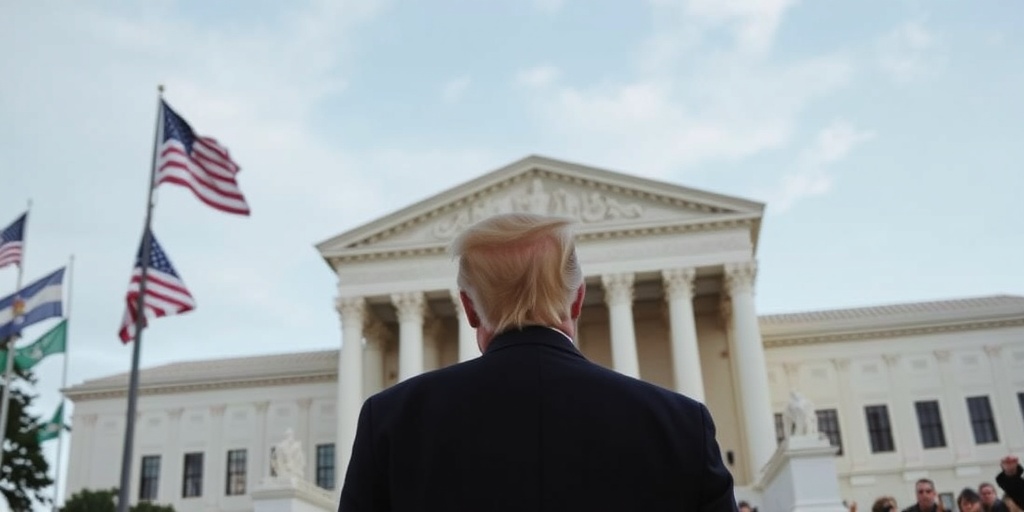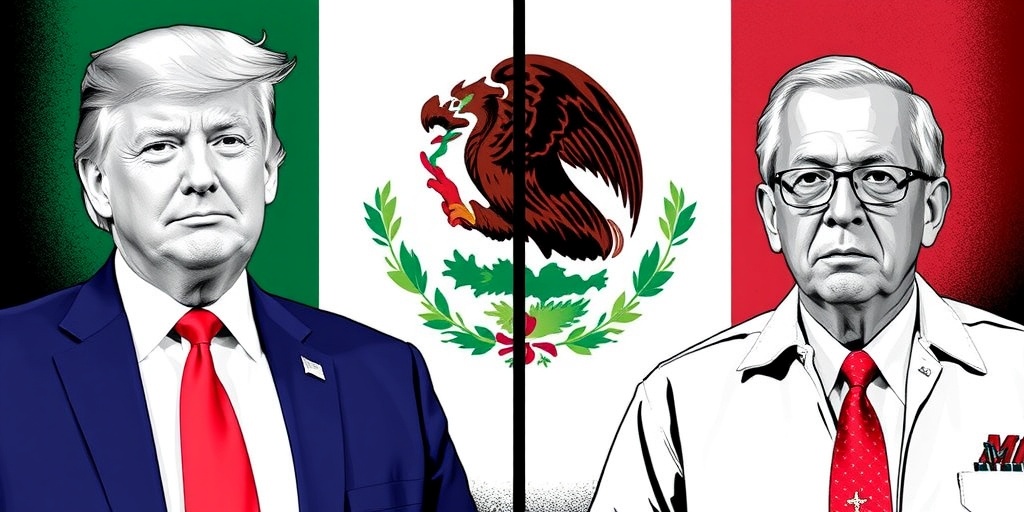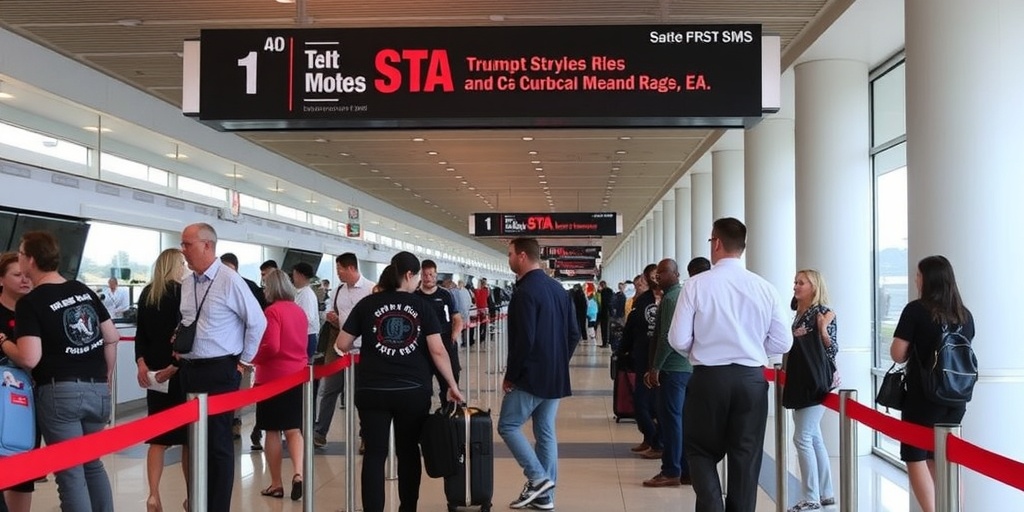Now Reading: Trump’s Birthright Citizenship Order Heads to Supreme Court
-
01
Trump’s Birthright Citizenship Order Heads to Supreme Court
Trump’s Birthright Citizenship Order Heads to Supreme Court

Supreme Court to Consider Trump’s Birthright Citizenship Order as Legal Battle Intensifies
On Thursday, lawyers for former President Donald Trump submitted a request to the Supreme Court, seeking to lift a nationwide hold that has been imposed on the president’s controversial order aimed at ending birthright citizenship for children born to undocumented immigrants. This action marks a significant escalation in the ongoing legal dispute surrounding the validity of Trump’s executive order, which has become a focal point of national interest and legal debate.
The current case is particularly momentous as it represents the first time the legal implications of Trump’s order have reached the highest court in the land. Should the Trump administration prevail, the order could be enforced in various regions across the United States, fundamentally altering the citizenship status of children born in the country to parents without legal immigration status.
The controversial order, signed by Trump on his initial day in office, sought to redefine the citizenship status of U.S.-born children to undocumented individuals, declaring that such children would no longer be recognized as citizens. Following the issuance of this order, three federal courts across Massachusetts, Maryland, and Washington State responded by placing temporary injunctions on the policy, effectively pausing its implementation.
As the Trump administration pushes back against these nationwide injunctions—judicial commands that prevent a policy from being enacted on a national level—the arguments presented highlight a broader debate regarding the judiciary’s role. Nationwide injunctions have slowly become a point of contention within U.S. legal circles and have been utilized by both Democratic and Republican administrations. Sarah M. Harris, the acting solicitor general, described the administration’s request as a “modest” appeal, aimed at confining the halt to “parties actually within the courts’ power,” pointing out the growing prevalence of universal injunctions since the Trump administration took office.
To bolster their case, the emergency applications submitted list 22 states and the District of Columbia as involved parties in the lawsuits challenging the executive order. Harris emphasized that the expansion of universal injunctions has created a complex and often chaotic judicial landscape, arguing the need to limit their scope to those directly involved in each case.
Legal experts and observers will be watching closely to see if the Supreme Court justices agree to take up the emergency matter. There is a chance that even if the court declines to address the emergency requests at this stage, it may nonetheless choose to explore the overarching issue of whether birthright citizenship is enshrined in the Constitution, once the cases have progressed through the lower courts’ appeals.
Birthright citizenship has historically been regarded as a fundamental principle of American law. The 14th Amendment, ratified in the aftermath of the Civil War, explicitly states that “all persons born or naturalized in the United States, and subject to the jurisdiction thereof” are citizens of the United States. A landmark Supreme Court case from 1898, United States v. Wong Kim Ark, confirmed this interpretation, affirming that nearly all children born on U.S. soil are entitled to citizenship. This understanding has been upheld consistently in various court rulings over the decades.
However, a small faction of legal scholars has begun advocating for a different interpretation, including prominent figures like John Eastman, who previously crafted plans to contest the results of the 2020 presidential election. Trump and his supporters contend that the 14th Amendment was never intended to extend citizenship to all individuals born on U.S. territory. They focus on the Amendment’s language stipulating that citizenship is reserved for individuals “subject to the jurisdiction” of the United States, arguing for a potential reinterpretation that could limit birthright citizenship.
To date, judicial responses to this argument have largely been unfavorable. A federal judge in Seattle explicitly labeled Trump’s executive order as “blatantly unconstitutional,” leading to a favorable ruling for opponents of the policy. The Ninth Circuit Court of Appeals, which includes a panel of judges appointed by various administrations, is set to hear arguments on the matter in June, suggesting that the legal battles surrounding this issue are far from over.
As the case advances, it will undoubtedly continue to ignite debate around citizenship rights, immigration law, and the scope of executive power, with implications that could resonate throughout American society for generations to come.
Stay Informed With the Latest & Most Important News
Previous Post
Next Post
-
 01New technology breakthrough has everyone talking right now
01New technology breakthrough has everyone talking right now -
 02Unbelievable life hack everyone needs to try today
02Unbelievable life hack everyone needs to try today -
 03Fascinating discovery found buried deep beneath the ocean
03Fascinating discovery found buried deep beneath the ocean -
 04Man invents genius device that solves everyday problems
04Man invents genius device that solves everyday problems -
 05Shocking discovery that changes what we know forever
05Shocking discovery that changes what we know forever -
 06Internet goes wild over celebrity’s unexpected fashion choice
06Internet goes wild over celebrity’s unexpected fashion choice -
 07Rare animal sighting stuns scientists and wildlife lovers
07Rare animal sighting stuns scientists and wildlife lovers





















